Joint statement welcoming EU’s top court judgment to correct a trans man’s gender identity data in national registry
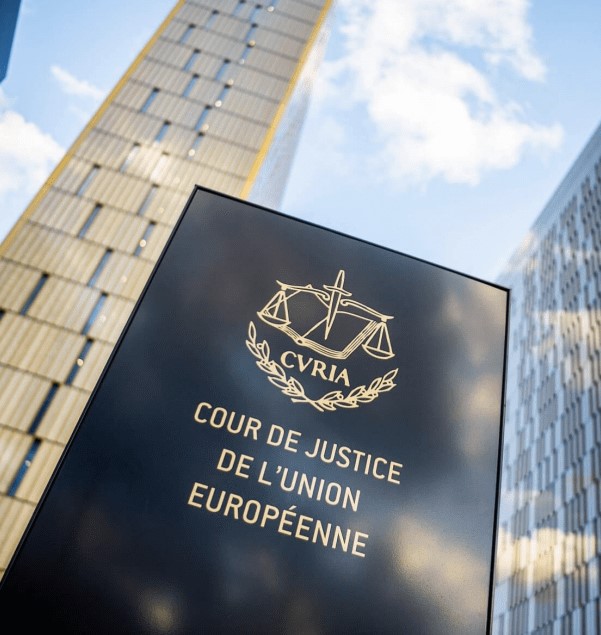
Today, the European Court of Justice (CJEU) issued a judgment in the case of Deldits (C-247/23), stating that national authorities responsible for keeping public registers (such as asylum registers) should correct data on gender identity when it is inaccurately recorded. This decision carries significant implications for advancing human rights protections in the EU, at a time when trans people and human rights in general are under massive attack.
Background
A trans refugee in Hungary seeks legal gender recognition
This case concerns an applicant who was granted refugee status in Hungary based on a well-founded fear of persecution in his country of origin because of his gender identity. The applicant requested the correction of his gender marker and name on the national asylum registry (as it reflected his name and sex at birth) under Article 16 of the EU’s General Data Protection Regulation (GDPR) on the basis that the data was inaccurate.
A legal paradox: Granted asylum but denied recognition
Despite the Hungarian authorities granting the applicant refugee status on this ground, he found himself in a paradox: his gender marker was registered incorrectly, and he could not correct it as there is no legal framework regulating the conditions for legal gender recognition (LGR) in the country.
Hungary’s ban on legal gender recognition
This case is a pivotal moment in the ongoing battle for the rights of trans people in Hungary, which has banned LGR for citizens in 2020, whilst refugees never had access to LGR. Moreover, Hungarian authorities requested proof of surgery as a precondition to change the applicant’s gender marker – a practice that the European Court of Human Rights has declared to be in violation of the right to respect for private and family life as protected by Article 8 of the Convention since 2017.
GDPR and human rights
The case raised several important questions for the CJEU: whether the GDPR mandates the correction of gender markers in national registries upon request. If so, does this request require evidence? If so, does it need to include proof of surgical intervention?
CJEU ruling strengthens trans rights and data accuracy rules
Today’s CJEU ruling addresses these questions, and is very favourable. It confirms that the right to rectification under Article 16 GDPR, taken in conjunction with the principle of data accuracy under Article 5(1)(d) GDPR, require authorities, without undue delay, to correct personal data concerning gender identity which is held in public registers when such data is inaccurate.
Importantly, the Court stated that if the purpose of collecting personal data is to identify the individual, the data should refer to the person’s lived gender identity, and not the identity assigned to them at birth. In that respect, the Court underlined that a Member State cannot invoke the absence of a domestic procedure for LGR to limit the exercise of the right to rectification under GDPR.
Secondly, the Court clarified that a person may need to provide reasonable proof to correct inaccurate data, but Member States cannot require proof of ‘gender reassignment surgery’ “under any circumstances”. The Court stated that such a requirement goes against the right to personal integrity (Article 3) and the right to privacy (Article 7) of the Charter of Fundamental Rights.
The Hungarian authorities must now allow for a change of gender marker in the Asylum Registry and all other national registries. However, instead of patchwork procedures by each data controlling entity in the country, the Hungarian government needs to urgently create legal certainty and set up a legal framework for quick, transparent and accessible procedure for LGR, where individuals can adapt their documents to match with their gender identity. The European Court of Human Rights already found that Hungary violates the European Convention on Human Rights for failing to allow such procedure (R.K. v. Hungary, 2023) including for trans refugees (Rana v Hungary, 2020).
The CJEU ruling is also binding upon national authorities keeping a public register across all EU Member States.
Reactions
TGEU Expert Advisor, Richard Köhler, comments: “Trans people deserve accurate personal data—full stop. Today’s Court ruling sends a clear message: while Member States control legal gender recognition processes, they must respect EU law. Evidence can be requested, but surgical proof? Absolutely forbidden.
This isn’t just about refugees—it’s also about asylum seekers and citizens. Where public records are kept to identify people, Member States need to recognise that a person’s real identity is what matters, not labels given at birth. The Court couldn’t be clearer: surgery requirements and forced sterilisation violate EU data protection law. Now, Member States must take action. No more delays. No more excuses. The message is simple: recognise people’s identities without invasive demands. The EU Commission must support Member States with implementation and take decisive action against those who continue to deny trans people their fundamental rights.“
ILGA-Europe Advocacy Director, Katrin Hugendubel, said: “This judgment is a significant step forward for the rights of trans people, including refugees, in the EU – especially in Member States without any legal framework for LGR. At a time when the rights of trans and LGBTI people in general are under constant threat, we call on Member States to implement this ruling by ensuring that their frameworks for collecting and storing personal data are GDPR and fundamental rights compliant. We also call on the EU Commission to actively monitor the implementation of this judgment and to encourage Member States to bring their frameworks for LGR in line with international human rights and EU law standards.”
According to Gábor Győző, the attorney representing the applicant in the proceedings on behalf of Háttér Society and the Hungarian Helsinki Committee, “it is very important and welcomed that the Court not only addressed the specifics of the case, but also assessed the Hungarian legal framework and the protection of the rights of trans people in a broader context. Moreover, this decision also serves as a guideline for all other Member States on this issue.”
“Trans people have been subject to constant governmental harassment in recent years. The judgment is a ray of hope that they cannot be deprived of their rights and denied their existence,” added Eszter Polgári, Director of the Legal Program of Háttér Society.
Joint calls to action
We call on EU governments to adhere to this CJEU ruling and proactively check their national procedures for a GDPR and European human rights compliant framework that allows individuals to quickly, transparently and in an accessible way update gendered data that is held on them. As EU data protection rules apply to anyone in the EU, they also need to ensure data of asylum seekers alongside refugees can be easily updated to reflect a person’s gender identity.
We call on the EU Commission to monitor the implementation of the Deldits case into national case law and adherence of the national authorities to the final decision. Failure in compliance needs to lead to infringement procedures. National Data Protection Authorities (DPAs) should equally monitor implementation and issue fines for non-compliant data controllers.
For a uniform understanding and application across the EU on both the Deldits and Mousse CJEU case law, we call on the Commission to provide practical guidance and the possibility to exchange for Member States and data controllers on implementation.
As EU data protection rules also apply to private actors, any organisation collecting, storing, or processing personal data on names and gender markers needs to check their processes for allowing correction of the data that they hold.
We urge EU institutions and Member States to ensure trans people have access to quick, transparent and accessible paths to LGR.
Congratulations to everyone involved for this incredible victory. Your efforts and dedication will make a huge impact on trans lives across the EU.
ILGA-Europe and TGEU provided support in the CJEU procedure to Háttér Society, which represented the applicant together with the Hungarian Helsinki Committee in this case.
Context
Today’s judgement comes on the heels of a groundbreaking data protection case strengthening the rights of non-binary people, Mousse (C-394/23). In this judgment, the CJEU found that the collection of gendered civil tiles (Mr/Mrs) when purchasing train tickets by a railway company is not necessary for providing transportation services and hence not compliant with the GDPR principle of data minimisation.
EU data privacy rules
The GDPR is Europe’s powerful privacy law that protects people’s personal data by giving them control over how private and public organisations collect, use and store their information. It applies to all organisations handling EU residents’ data anywhere in the world, and goes far beyond cookie settings—it ensures organisations get proper consent, minimise data collection, secure information properly, and allow people to access, correct, or delete their own data.
Today’s judgment particularly addresses national authorities and public registers. Therefore, it goes beyond asylum registers and may well have implications for national civil registries and how such personal data can be corrected.
The Court reaffirmed that regulation of legal gender recognition continues to be within the remit of Member States, but that they must respect EU data protection and fundamental rights when doing so.
Read Háttér Society’s press release here.
Meeting the realities faced by racialised LGBTI asylum seekers
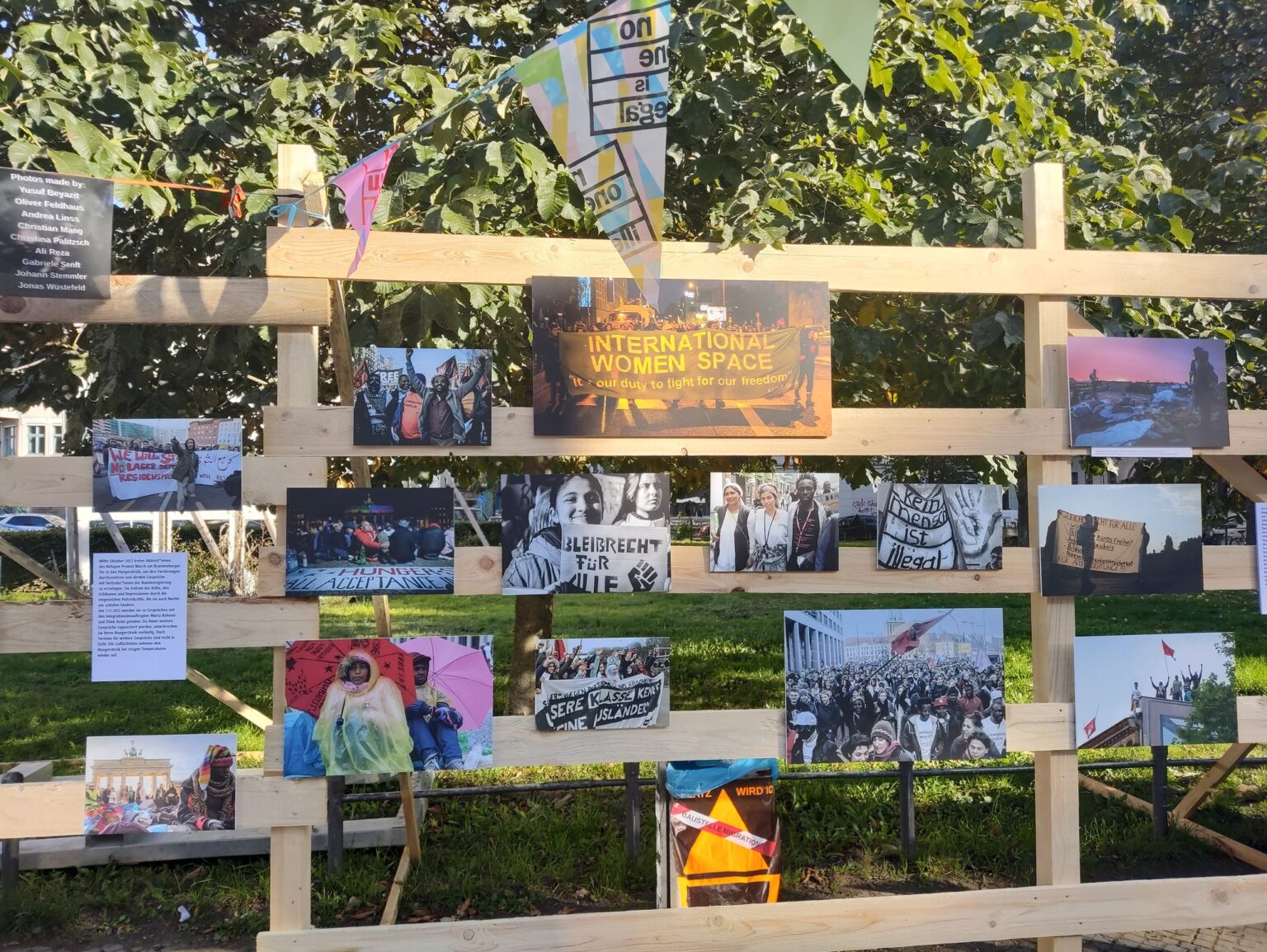
In the first of a new series of blogs, highlighting the work of LGBT organisations tackling injustice, racism, and discrimination, we explore how The Break Isolation Group in germany supports racialised LGBTI asylum seekers.
“No one can tell you better how to navigate the system than someone who has lived through it. We’re tired of people deciding for us or speaking on our behalf.“
In this series, we’re sharing insights from work done by LGBTI organisations who address intersectional impacts of injustice, racialisation, racism and supremacy, and specific harms affecting the lives of racialised LGBTI communities across Europe. We hope their stories and practices will inspire and resonate across communities. We believe that solutions and approaches that include a few will pave the way and point to the solutions for many.
The Break Isolation Group, part of the International Women* Space (IWS), provides a compelling example of how grassroots, refugee-led initiatives can address the systemic isolation and oppression faced by asylum seekers in Germany. The group operates alongside Resilient Voices, a working group focusing specifically on the needs of queer refugees. Together, they tackle the overlapping and distinct challenges faced by marginalised communities in the asylum process.
Understanding the system: isolation as policy
The asylum system in Germany like in many other countries across Europe, as described by Ann, a member of IWS, “thrives on isolation.” Refugees are often placed in remote, restrictive accommodation centres, known as lagers1, which are specifically designed to curtail mobility and exacerbate social exclusion. Ann reflects on the systemic dehumanisation inherent in this setup: “The system seems to want us to be content with the bare minimum, to accept being treated as less than human.”
For queer asylum seekers, the challenges multiply. Ann highlights that the asylum process burdens LGBTI people with proving their sexuality in invasive and humiliating ways: “Just saying you identify as queer isn’t enough—you’re expected to provide proof, though no one tells you what that proof looks like.” Shared accommodations expose them to further risks. Rose, another member of IWS, points out, “Homophobia doesn’t disappear when people leave their countries. You’re often housed with people from the same communities, who perpetuate the same biases and violence.”
Peer-to-peer support as a cornerstone of resilience
Against this backdrop, Break Isolation Group has built its work on peer-to-peer support. Ann emphasises the approach’s significance: “No one can tell you better how to navigate the system than someone who has lived through it. We’re tired of people deciding for us or speaking on our behalf.”
Their monthly visits to lagers allow them to connect directly with asylum seekers, but discretion is key to ensuring safety. “We don’t loudly announce that we’re queer representatives,” Rose explains. “Instead, we create safe ways for people to connect with us—through WhatsApp groups or anonymous info lines funded by collaborators.”
These efforts help asylum seekers feel less isolated in a system designed to isolate. “Sometimes, just seeing a familiar face—someone who looks like you and has been through the same thing—can be transformative,” says Ann.
Bridging isolation through community building
Break Isolation Group also focuses on fostering community. Their strategies range from storytelling and shared meals to more structured activities like legal workshops. Rose shares an example: “The Ubuntu Kitchen brings women together to cook and share meals. Food is a powerful way to build trust and connection.”
Annual retreats offer a space for asylum seekers to step away from the daily struggles of the asylum system. These events combine moments of rest and healing with workshops and advocacy training, helping participants recharge and develop skills for navigating the system and organising collectively.
From survival to advocacy
While much of their work addresses immediate needs, Break Isolation Group also aims to challenge the systemic structures perpetuating these challenges. They advocate for the abolition of lagers, the right to work and study, and freedom of movement. “The asylum system isn’t designed to support us—it’s a hotbed of oppression,” Ann explains. “We need to dismantle these systems and replace them with ones that prioritise dignity and autonomy.”
The group is also campaigning against the introduction of payment cards (Bezahlkarte) for asylum seekers, a measure resulting from the revision of the Asylum Seekers’ Benefits Act. These cards limit and control how asylum seekers can spend their financial support, preventing them from withdrawing cash and restricting where and on what they can spend money. “This system dehumanises us by taking away our ability to make basic choices,” Rose says. “It’s a regression to policies that were already deemed harmful a decade ago, when a similar system of vouchers was in place.”
Another critical area of their advocacy is recognising climate refugees. Rose highlights the gap in current asylum frameworks: “The system only seems to understand migration as a result of war, but climate change is forcing millions to move, and we need policies that acknowledge that.”
Lessons for the wider movement
Break Isolation Group is a grassroots, refugee-led initiative that addresses systemic injustice. Their work demonstrates that those most affected by these systems are best placed to identify solutions and changes that need to come about. As Ann says, “We are not just survivors of these systems—we are experts in how to dismantle them.”
Group’s focus on peer-to-peer support and community-building, the intrinsic intersectionality of their work and the bedrock of their advocacy efforts being around basic human rights provide valuable insights for broader movements. “When we focus on the most marginalised, we create solutions that benefit everyone,” Rose asserts.
The group’s work challenges us to ask: how can we listen to and amplify the voices of those most affected? How can we build movements that prioritise both immediate care and long-term transformation? Where our work could lead us when we put basic human rights, like freedom of movement, or intersectionality, like racial and climate justice, at its forefront?
New funding
ILGA-Europe continues its commitment to providing funds and support for this part of LGBTI movement that addresses intersectional impacts of injustice, racialisation, racism and supremacy. On 30 January 2025, we launched a new call for proposals to support European groups working for and with racialised LGBTI communities. This is the third cycle of this programme. Apply by 30 March 2025, 23.59 CET.
- Here and throughout the blog, we use “lager” as a reference to refugee accommodation centres. This term is strategically chosen by activists, including Break Isolation Group, to describe the isolating nature of these guarded buildings and complexes, which are typically located on the outskirts of towns, disconnected from communities, and impose curfews and visitor restrictions. Activists reject the official term “Heim” (a German word for home) because it sugarcoats the dehumanising character and historical context of this form of accommodation.
↩︎
The United Nations has identified LGBTI people as a group specifically affected by the war in Ukraine
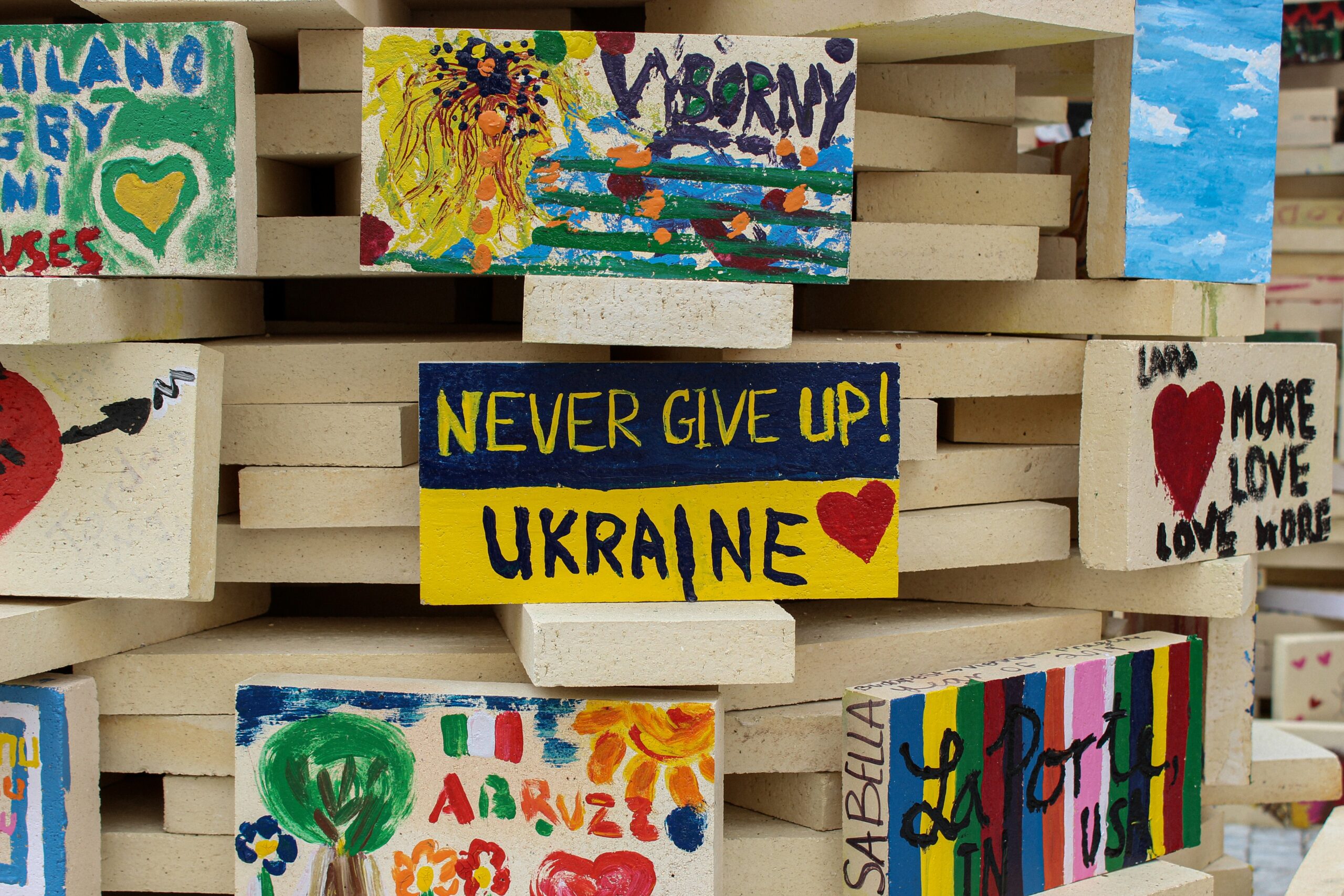
Working alongside ILGA-Europe, the UN has published recommendations For humanitarian actors working with LGBTI people affected by the war in Ukraine.
In all wars, LGBTI people have the same basic needs as everyone else, however, because of their real or perceived sexual orientation, gender identity and/or sex characteristics, they are at higher risk of exclusion and violence.
As ILGA-Europe’s Executive Director Evelyne Paradis explained in our previous blog: “Humanitarian crises affect everybody, however, some communities sometimes need a targeted response because of pre-existing vulnerabilities. These particular vulnerabilities make people feel unsafe when dealing with humanitarian organisations providing safe shelter, basic necessities food and medical aid. Not knowing if they will be treated without discrimination, simply welcomed and be taken care of, is a barrier for people in accessing humanitarian support.”
This is why ILGA-Europe have worked together with the UN, via its Protection Cluster Ukraine, on a list of recommendations for humanitarian actors and service providers working with people affected by the war in Ukraine, so they can better understand and address the risks faced by LGBTI people staying or fleeing the country.
Here are the core recommendations:
Ensure inclusive programming, advocacy and responses
- Collect data that is disaggregated by sex, gender, age and disability as well as data relating to specific protection needs, risks and barriers LGBTI people face.
- Map presence and reach out to LGBTI organisations to learn about their work.
- Establish specific LGBTI reception measures, such as gender-neutral options on registration forms or special hours and days for LGBTI people to register.
- Encourage the active participation of LGBTI individuals in programmes and activities.
- Link specialised LGBTI centres and shelters to the humanitarian aid system.
- Include staff from different genders and backgrounds
- Address barriers for LGBTI people to access social services and programmes
- Include funding opportunities for LGBTI-led organisation in your resource mobilization actions.
- Raise awareness of the situation of LGBTI people affected by the war
- Advocate for non-discriminatory provision of services to LGBTI people by humanitarian actors, civil society organisations, governments and others.
Create safe spaces
- Ensure that staff working in Ukraine are sensitive to the concerns and needs of LGBTI people.
- Respect individual preferences and privacy.
- Communicate through your staff members that your organisation is a safe space
- Seek out and create safe, confidential and effective referral systems and partnerships.
- Advocate for inclusive treatment by medical and healthcare professionals
- Facilitate links between LGBTI people in Ukraine and the wider LGBTI community
- Allow trans, intersex and non-binary people to choose the housing option, scattered-site housing or communal, they believe is safest for them.
Ensure accountability to the affected population
- Consult with LGBTI people on how they want to participate
- Ensure that LGBTI individuals are well informed about their rights
- Ensure that there is two-way communication with LGBTI people via their preferred channels.
- Provide a space where LGBTI people can meet safely
- Engage LGBTI people in gender-based violence prevention and response.
A Marathon, not a sprint: how we’re responding to the invasion of Ukraine

In the past week, since Russia invaded Ukraine on February 24, the global response has been massive, alongside a great number of organisations working with LGBTI communities in the country, and in countries where refugees are landing.
At ILGA-Europe, we’re working to immediately help vulnerable people, but we’re looking towards the long-run too.
As the war in Ukraine has become the focal point of the world, there is a rush to help people and organisations in the country, and rightly so. As many staying in Ukraine seek safety and survival support, while a million and counting continue to cross borders into neighbouring countries and chances for people to leave become slimmer by the day, an immediate humanitarian response is absolutely necessary
At ILGA-Europe we have been working in this respect, helping people on the ground as best we can through our connections with LGBTI organisations, but we recognise that this is not going to be a short-term situation for vulnerable people in Ukraine, Russia and neighbouring countries.
We recognise that this is a marathon, not a sprint, and that efforts across the board to help are complex and will become more so as time goes on. With that in mind, here are the elements of our work, which began in the days leading up to February 24, and are continuing.
Funding
We have shifted a major proportion of our re-granting funds to give emergency help to LGBTI organisations on the ground in Ukraine to help people in the country find safety, food and shelter. We are also shifting funds to LGBTI organisations in neighbouring countries to help get LGBTI refugees into proper living conditions and help them acclimatise.
Working with other funders
We are coordinating with other organisations who are doing fundraising, as well as with our funders to join them up with the right organisations in Ukraine and neighbouring countries, where the funds they raise can do most good.
Directing individual fundraising to the organisations that urgently need it
We are building a list of organisations in Ukraine and neighbouring countries working directly with LGBTI people and communities, which can be found here. This is a growing list, and the information is as accurate as possible.
Connecting those who are mobilising
We have set up various communication channels to connect those who are helping people get into safety and ensure quick coordination around emerging needs.
Working with our member organisations in Ukraine, Belarus and Russia
Although it is difficult to have day-to-day contact with LGBTI organisations in Ukraine, we are doing our utmost to keep the flow of contact with them going, so that we can work to support them in whatever way we can, based on their needs. We are in day-to-day contact with our member organisations in Russia and Belarus, where repression to civil society has intensified, to support them in whatever way we can, based on their needs.
Advocacy on Medical Provisions
Currently one of the paramount issues is making medications available for trans, intersex and people living with HIV. We are assessing needs and working to target the World Health Organisation, governments and the pharmaceutical industries, advocating on behalf of those in need.
Advocacy for Refugees
We are providing information about EU regulations adopted on temporary residency for refugees now, and using our channels with EU institutions and agencies, as well as with national governments to see how we can make sure that all refugees are respected at borders, including BPOC, people with non-Ukrainian passports and trans people.
Together with Transgender Europe (TGEU), we are raising awareness about the specific vulnerable situation for trans women in Ukraine who do not have a female gender marker on their passport. Many are trying to leave the country but cannot, due to the general mobilisation. We are seeing how we ensure support of such cases and raise awareness of this situation of extreme vulnerability.
We have our communications channels open non-stop for LGBTI organisations who need help, or wish to help. In the meantime, we recognise that while much of our immediate work has turned towards the war in Ukraine, we are figuring out ways to continue to be responsive to increasingly complex, and daily changing circumstances, while continuing to give our attention to other crucial elements of our work for LGBTI people across Europe and Central Asia.
Alarming new research shows how LGBTI people are affected every day by inequality
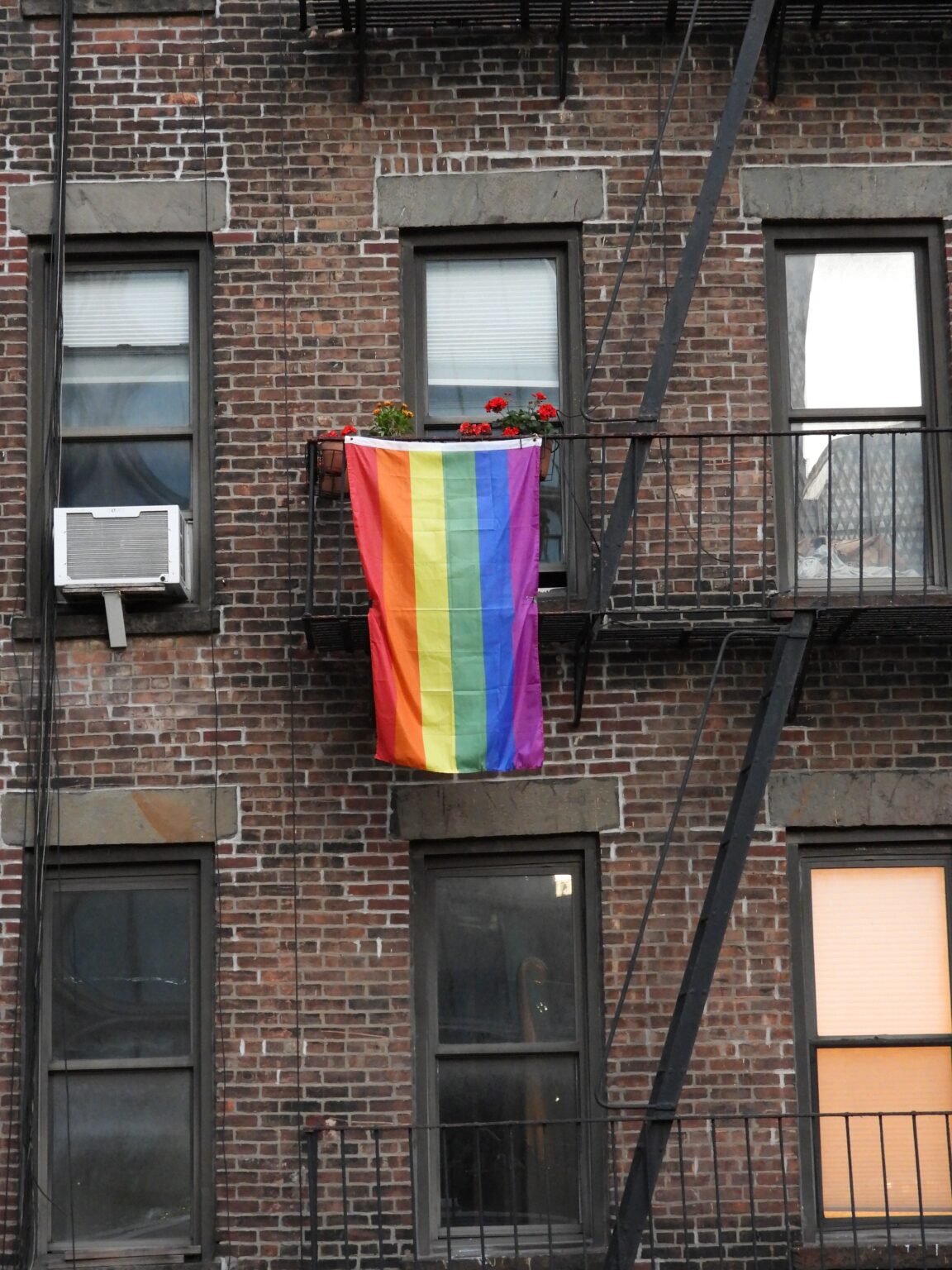
Recent data shows that LGBTI young people perceive the labour market with fear and that most of LGBTI youth living with their families have experienced violence in different parts of Europe. These are among the alarming facts related to the impact of inequality and oppression in LGBTI communities, as identified through ILGA-Europe’s No One Left Behind initiative.
We all may experience highs and lows along our working lives or struggle to find the apartment of our dreams, but chances are that LGBTI people will encounter greater obstacles when looking for job or a home. These are some of the conclusions from the research carried out by grantees of ILGA-Europe’s No One Left Behind fund.
The No One Left Behind fund supported projects addressing socio-economic barriers for LGBTI communities in Europe and Central Asia. Launched in 2020, after the breakout of the global COVID-19 pandemic, the program aimed to enable LGBTI groups and organisations to develop long-term responses to underlying causes of inequalities and oppression, which increase the vulnerability and marginalisation of LGBTI people, especially in times of crisis.
Thanks to No One Left Behind, a number of organisations in Europe and Central Asia mapped the ways in which social and economic inequalities affect the livelihoods of LGBTI people, in particular when these are aggravated by a crisis such as the COVID-19 pandemic. However, these conclusions are only the tip of the iceberg, as there is a real gap in data. Even if comprehensive research is lacking, available evidence already points to the urgency of collecting more information and, above all, taking more action to address the inequalities LGBTI people experience.
Based on the No One Left Behind research, here is a glimpse of the current lived realities of LGBTI people in different parts of Europe:
Access to Employment
? Public officers in access to employment institutions are unaware or not prepared to provide services for LGBT people, and in some cases are homophobic (Kosovo).
? There are high rates of unemployment among marginalised groups such as Roma LGBT people (Serbia).
? LGBTI young people perceive the labour market with fear. Often, they have grown up in homophobic or transphobic families who do not accept them. Schooling experiences are marked with homophobia and transphobia (Romania).
? 25% of interviewed LGBTI youth say that in the absence of a workplace they no longer have money for basic needs, including medical services (Romania).
Safe housing
? On-and-off homelessness is prevalent among surveyed LGBT refugees. Some interviewees reported to sleep at friends’ and changing their location every two days in order to avoid bigger shelters, because of their fear of discrimination (Austria).
? Duration of homelessness among LGBT refugees is typically six to ten months (Austria).
? More than half LGBT youth aged 16 to 29 interviewed live at their family’s home and the majority have experienced some kind of violence (Slovenia).
? 78% of interviewed LGBT youth aged 16 to 29 do not understand their situation as inadequate, although they fit the criteria for inadequate housing (Slovenia).
Trans
? Trans sex workers communities are harshly impacted by violence, exclusion and suicidal ideation (Greece).
? Up to 18 out of 50 trans people surveyed were required to remove their internal genital organs. This was evaluated as very problematic. To require this intervention also prevented persons who wished to transition from doing so (Slovakia).
? Trans people often face issues in their transition due to the lack of preparation of authorities (Slovakia).
LGBT refugees
? The main obstacles encountered by LGBT refugees when seeking support are language barriers and discrimination (Austria).
? 20% of interviewed LGBT refugees receive social benefits. 80% receive support only from individuals from the LGBTIQ community (Austria).
? 95,1% of interviewed LGBT asylum seekers feel depressed and have trouble sleeping. 87% feel anxiety on a regular basis and 41,5% are hopeless about their future (Greece).
? 41% of interviewed LGBT asylum seekers have stated that they have engaged in sexual actions in exchange for food, housing and/or money (Greece).
Policy Briefing on LGBTI Refugees and EU asylum legislation
LGBTI asylum seekers are often at risk of additional danger because of their SOGIESC during their journey and upon arrival in the country where they seek asylum, which can take the form of harassment, exclusion, sexual violence, or other forms of violence. Often but not always, they qualify as vulnerable persons with specific needs in legal assistance, reception conditions, healthcare, and others throughout the asylum process.
5 urgent things the EU must do to help to protect Afghan women, girls and minorities at risk
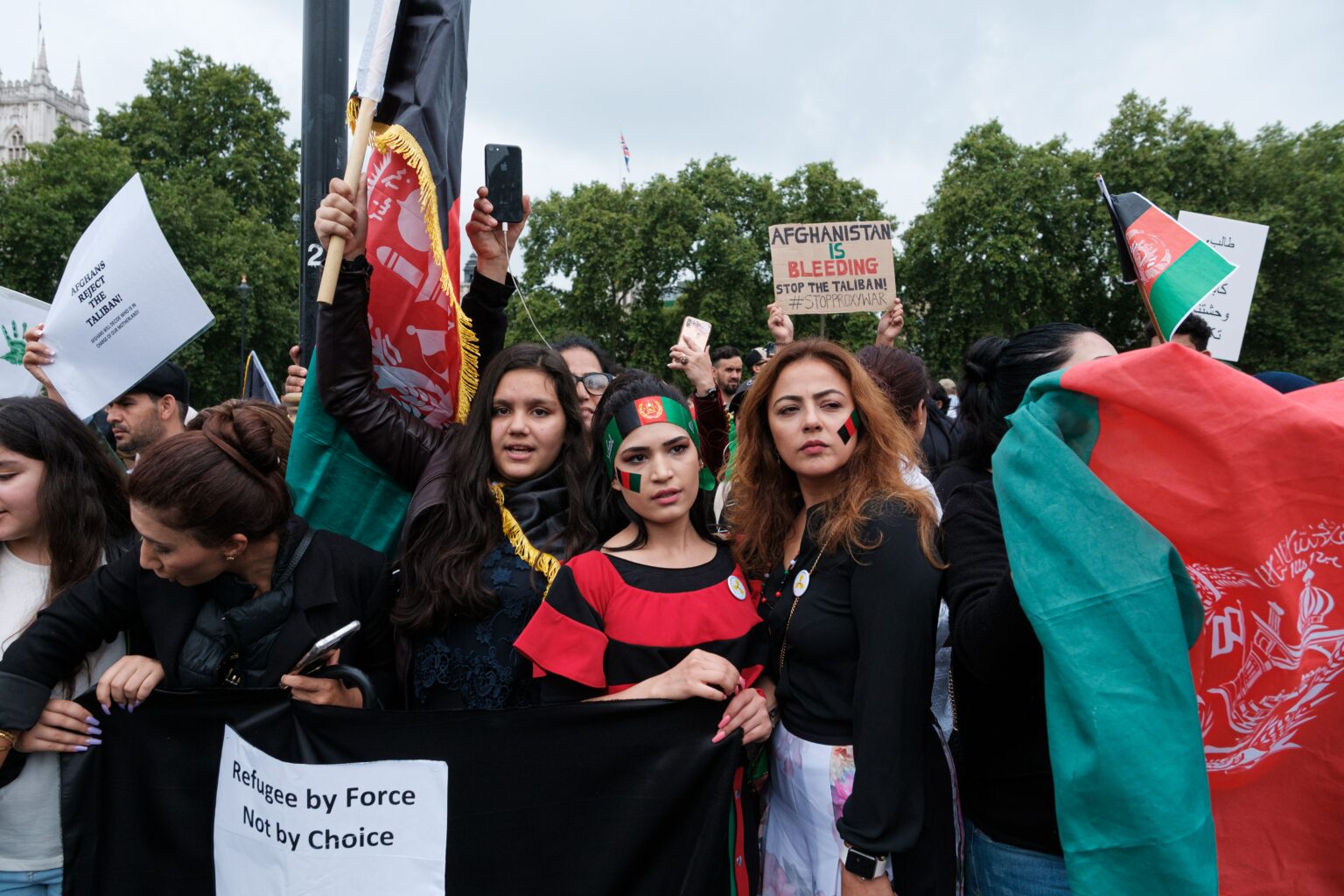
Since the Taliban have come back to power in Afghanistan, leading to a humanitarian crisis as thousands try to flee the country, ILGA-Europe and several European human rights organisations are alarmed and deeply worried about the security of people, especially women and minorities, including LGBTI people. Here are five responses the EU and its member states must engage in to protect Afghans at risk.
After 20 years out of power, the Taliban, whose interpretation of Sharia law poses a major threat to women and minorities, rule Afghanistan once more. Back in 2001, in response to the 9/11 attacks, the US intervened in the Talbian’s brutal rule. The organisation had offered its protection to Osama Bin Laden, who was responsible for the 9/11 attacks in New York and Washington. While a new Afghan government took over in 2004, the Taliban attacks never went away. Fast forward to the summer of 2021, and as American troops got ready to leave Afghanistan, in line with an agreement made by former President Donald Trump, the Taliban took over the main cities, and finally the capital, Kabul, installing themselves back in power. President Joe Biden has confirmed that US troops will exit the country by August 31. Women and minorities, including LGBTI people, are at high risk under the Taliban’s extremist regime. Many are fleeing in desperation.
The vast majority of displaced Afghans will likely be hosted in neighbouring countries. Since 2015, 570,000 Afghans have sought protection in the EU and associated countries. The majority received protection status. In contrast, by July 2021, Iran had hosted 800,000 registered refugees and up to 3 million other displaced Afghans. In Pakistan, there were 1.4 million registered refugees and up to 2 million other displaced Afghans. These figures have been increasing by the day. In addition, there are close to 5.5 million internally displaced people in the country.
It is crucial that the small proportion of displaced people who do arrive in Europe are given rapid access to a fair asylum procedure in line with European states’ obligations under EU and international law.
Here are five urgent responses the EU and its member states must engage in to protect Afghans at risk:
1. Evacuate as many of the people facing immediate security risks as possible, as quickly as possible
This is the immediate priority, which should then be followed by expansion of resettlement and complementary pathways for those most at risk and most vulnerable. A particular focus should be on women and girls and their immediate family members. Attention should also be paid to the situation of minorities, including LGBTI people, where they are at additional and immediate risk of persecution.
Europe should continue the critical efforts to establish and implement safe and regular routes to protection, including for those who have worked for European institutions and agencies (military, diplomatic and civil society) in Afghanistan, and those at immediate risk after the Taliban takeover. Information on how to apply should be clear and procedures should be as simple as possible, taking into account that people are on the move, may have limited internet access and are using mobile phones to apply, and that they may have struggled to obtain or lost their original documents on the journey.
Family reunification is a crucial safe route to protection, and has untapped potential to be used in emergency situations. Implementing existing commitments and legal obligations on family reunion is a priority, including allowing safe routes and the necessary documentation for those seeking to apply and for those who have already been accepted. In addition, temporary programmes with a widened scope of family definitions to include more family members and an easing of evidential requirements (such as provision of documents that may be impossible to acquire) should all be considered. Similarly, complementary pathways, such as private sponsorship, student scholarships and humanitarian visa programmes should be rapidly expanded, especially given the willingness of communities, institutions and organisations to support Afghans.
2. Scale up provision of humanitarian assistance
It is necessary to rapidly scale up coordinated humanitarian assistance to Afghanistan itself, via independent organisations still able to operate, and to the neighbouring countries. Preserving access for humanitarian actors should be incorporated into international negotiations and international responses. In particular, critical services for women and girls must continue to be delivered, and this requires female aid workers who are able to access communities and create safe spaces for women and girls.
It should be noted, however, that humanitarian assistance in the region is not a substitute for Europe offering protection in line with EU and international obligations. Nor is it a means to deter those who are vulnerable and at risk from pursuing a safe route to protection.
3. Re-establish security for the people of Afghanistan
Use the EU’s Common Foreign and Security Policy (CFSP) and other EU external action, including diplomatic efforts, civilian crisis management, sanctions and other operational tools, to support security for Afghans and international peace negotiations.
The EU should support engagement of all relevant international actors, including those supporting proxies in Afghanistan and with interests there, in efforts to stabilise the situation. Dialogue with all relevant actors in Afghanistan when it is in the interests of the people of Afghanistan is important. However, apart from humanitarian assistance, all other forms of cooperation with any potential future government should be conditional on respect for the fundamental rights of all Afghans, in line with the international obligations of Afghanistan and of the EU. It also has to be ensured that potential sanctions do not negatively affect the ability to provide humanitarian aid.
The objective of EU foreign and security support and operations should be the security of Afghans and protection of civilians in the short-term and peace in the long-term for the people of Afghanistan. This should be prioritised over counter-terrorism, anti-migration or otherwise narrowly defined European interests.
When the immediate crisis has abated, a thorough evaluation of the EU’s role in the international efforts in Afghanistan must also take place, in order to inform future Common Security and Defence Policy (CSDP) and wider CFSP actions. The current situation is a test for the European External Action Service and it should lead Europe’s response.
4. Ensure rapid access to fair asylum procedure in Europe now
European countries must provide rapid access to fair asylum procedures for the small proportion of displaced Afghans who seek protection here. The practice of pushbacks and collective expulsions of Afghans (and other nationalities) at European borders must stop. Resources and attention should focus on preparations, such as ensuring that asylum systems are functioning including with adequate reception space — as they should be in any case.
Examination of cases already in asylum systems must take into account the reality on the ground and re-examination of decided asylum cases should take place, given the dramatic changes in the situation in country. We strongly support the initiatives already taken by some Member States in this regard but express dismay that some countries have frozen decision-making in open cases.
It is particularly worrying and dangerous the insular approach of certain European politicians who seek to make the situation about “us”, Europe, and the small impact that will be had here, rather than keeping the focus on the security and humanitarian needs of Afghans.
5. Halt deportations to Afghanistan
It was not safe to deport people to Afghanistan before the Taliban takeover; now it is certainly not the case and courts will — rightly — halt deportations. Asylum and other cases where human rights concerns preclude deportation need to be reviewed in light of current developments. It can be assumed that the majority will meet the criteria for international protection. Alternatives to deportation and related detention need to be considered, including providing legal statuses and the right to remain; decision-making should not be put on hold.
Joint Statement: Current priorities for an EU response to the situation in Afghanistan
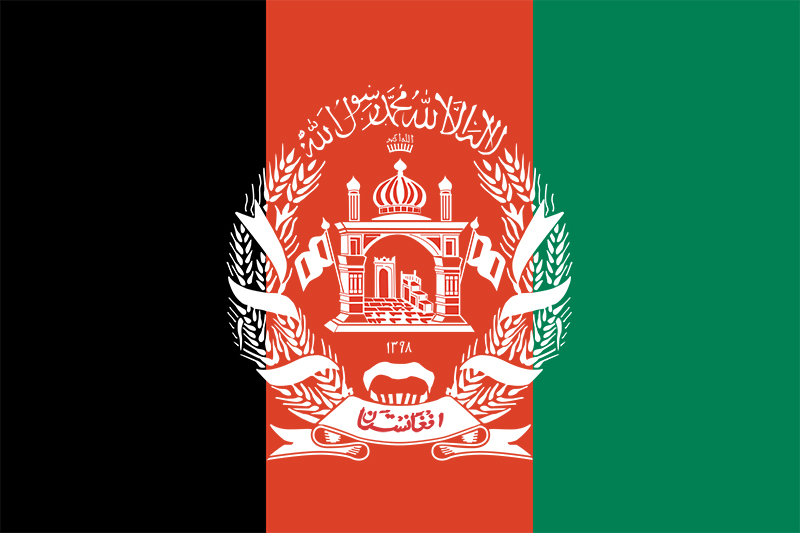
As European NGOs working on asylum and migration and Afghan Diaspora organisations in Europe, we are alarmed about the situation in Afghanistan and concerned above all about the security of the people of Afghanistan, both those within the country and those displaced and seeking protection in the region and beyond.
The vast majority of displaced Afghans will likely be hosted in the neighbouring countries, as has been the case over decades of displacement from Afghanistan. For reference, since 2015, over six years, 570,000 Afghans sought protection in the EU and associated countries. The majority received a protection status. In contrast, by July 2021, Iran hosted 800,000 registered refugees and up to 3 million other displaced Afghans. In Pakistan, there were 1.4 million registered refugees and up to 2 million other displaced Afghans. These figures have been increasing by the day. In addition, there are close to 5.5 million IDPs in the country.
In this context, it is crucial that the small proportion of displaced people who do arrive in Europe are given rapid access to a fair asylum procedure in line with European states’ obligations under EU and international law.
We recommend the following five urgent responses for the EU and European countries:
1. Evacuation, resettlement and other safe routes to protection for Afghans
Evacuate as many as possible of the people facing immediate security risks, as quickly as possible.
This is the immediate priority, to then be followed by expansion of resettlement and complementary pathways for those most at risk and most vulnerable. A particular focus should be on women and girls and their (immediate) family members. Attention should also be paid to the situation of minorities where they are at additional and immediate risk of persecution.
Europe should continue the critical efforts to establish and implement safe and regular routes to protection, including for those who have worked for European institutions and agencies (military, diplomatic and civil society) in Afghanistan, and those at immediate risk after the Taliban takeover. Information on how to apply should be clear and procedures should be as simple as possible, taking into account that people are on the move, may have limited internet access and using mobile phones to apply, and that they may have struggled to obtain or lost their original documents on the journey.
We welcome the approach of European countries to bringing people to Europe, and the clear statement from High Representative Borrell that people cannot be abandoned and must be offered shelter in the EU. We support continued coordination by European nations to ensure this happens, and urge a wide approach covering as many as possible from at-risk groups, including journalists, human rights defenders, those who worked for the international community, those funded by but not directly employed by EU programmes, and those who were promoted by or visibly supported by international actors.
We note that family reunification is a crucial safe route to protection, and has untapped potential to be used in emergency situations. Implementing existing commitments and legal obligations on family reunion is a priority, including allowing safe routes and the necessary documentation for those seeking to apply and for those who have already been accepted. In addition, temporary programmes with a widened scope of family definitions to include more family members and an easing of evidential requirements (such as provision of documents that may be impossible to acquire) should all be considered. Similarly, complementary pathways, such as private sponsorship, student scholarships and humanitarian visa programmes should be rapidly expanded, especially given the willingness of communities, institutions and organisations to support Afghans.
2. Humanitarian assistance
Scale up provision of humanitarian assistance.
In line with calls from international organisations and humanitarian actors in the region, it is necessary to rapidly scale up coordinated humanitarian assistance to Afghanistan itself, via independent humanitarian organisations still able to operate, and to the neighbouring countries via all relevant actors. Preserving access for humanitarian actors should be incorporated into international negotiations and international responses. In particular, critical services for women and girls must continue to be delivered, and this requires female aid workers who are able to access communities and create safe spaces for women and girls.
It should be noted, however, that humanitarian assistance in the region is not a substitute for Europe offering protection in line with EU and international obligations. Nor is it a means to deter those who are vulnerable and at risk from pursuing a safe route to protection.
3. Re-establish security for the people of Afghanistan.
Use the EU’s Common Foreign and Security Policy (CFSP) and other EU external action, including diplomatic efforts, civilian crisis management, sanctions and other operational tools, to support security for Afghans and international peace negotiations.
The EU should support engagement of all relevant international actors, including those supporting proxies in Afghanistan and with interests there, in efforts to stabilise the situation. Dialogue with all relevant actors in Afghanistan when it is in the interests of the people of Afghanistan is important. However, apart from humanitarian assistance, all other forms of cooperation with any potential future government should be conditional on respect for the fundamental rights of all Afghans, in line with the international obligations of Afghanistan and of the EU. It also has to be ensured that potential sanctions do not negatively affect the ability to provide humanitarian aid.
The objective of EU foreign and security support and operations should be the security of Afghans and protection of civilians in the short-term and peace in the long-term for the people of Afghanistan. This should be prioritised over counter-terrorism, anti-migration or otherwise narrowly defined European interests.
When the immediate crisis has abated, a thorough evaluation of the EU’s role in the international efforts in Afghanistan must also take place, in order to inform future Common Security and Defence Policy (CSDP) and wider CFSP actions. The current situation is a test for the European External Action Service and it should lead Europe’s response.
4. Access to asylum in Europe
Ensure rapid access to fair asylum procedure; preparations should be made in Europe now.
European countries must provide rapid access to fair asylum procedures for the small proportion of displaced Afghans who seek protection here. EU and international obligations to offer protection to those in need should be respected. The practice of pushbacks and collective expulsions of Afghans (and other nationalities) at European borders must stop. Even before the significant deterioration of the security situation, the majority of Afghans arriving in Europe received a protection status. In addition, the likely number of arrivals is manageable. Resources and attention should focus on preparations, such as ensuring that asylum systems are functioning including with adequate reception space – as they should be in any case.
Examination of cases already in asylum systems must take into account the reality on the ground and re-examination of decided asylum cases should take place, given the dramatic changes in the situation in country. We strongly support the initiatives already taken by some Member States in this regard but express dismay that some countries have frozen decision-making in open cases.
We condemn the insular approach of certain European politicians who seek to make the situation about “us”, Europe, and the small impact that will be had here, rather than keeping the focus on the security and humanitarian needs of Afghans. We further condemn the use of the situation to stoke panic and fear about people seeking protection, as is their right. It is particularly self-serving to instrumentalise the situation in Afghanistan to pursue pre-existing proposals to prevent or reduce access to protection in Europe.
Fear-mongering about the small proportion of the displaced who may arrive in Europe:
- creates insecurity for Afghans in Europe and elsewhere;
- legitimises and encourages border closures, including outside Europe, that prevent people fleeing to safety;
- is highly counter-productive. Europe needs to do its fair share in supporting displaced people. Otherwise the neighbouring countries will no longer be willing or able to host the vast majority of those displaced from Afghanistan.
We wish to underline that the EU, Turkey and countries neighbouring Afghanistan should all offer protection to Afghans fleeing from Afghanistan, hosting those in need in safety and dignity. However, Turkey, already the largest refugee hosting country in the world, cannot be considered a safe country of asylum for Afghans; there is no possible legal argument that can be advanced to support such a claim. Ongoing efforts to persuade Turkey to take on additional responsibilities are misguided and are out of step with responsibility sharing committed to by EU Member States in the Global Compact on Refugees.
Any efforts to close borders and forcibly prevent the movement of displaced people undermine the global protection system and directly contribute to serious harm to people seeking protection. Ultimately, protection in other regions, including in the countries neighbouring Afghanistan is dependent on the EU taking on a fair sharing of responsibility for displaced people, given that the willingness of other countries to host displaced people will be eroded if Europe aims to prevent all arrivals.
5. Suspending deportations to Afghanistan
Halt deportations to Afghanistan.
It was not safe to deport people to Afghanistan before the Taliban takeover; now it is certainly not the case and courts will – rightly – halt deportations. Asylum and other cases where human rights concerns preclude deportation need to be reviewed in light of current developments. It can be assumed that the majority will meet the criteria for international protection. Alternatives to deportation and related detention need to be considered, including providing legal statuses and the right to remain; decision-making should not be put on hold.
Signatories
#DiasporaVote!; 11.11.11; ACT Church of Sweden; aditus foundation; Afghan Action U.K.; Afghan Youth Association in Denmark; Africa Solidarity Centre Ireland; Associazione Consulenza Economica per migranti e rifugiati (ACEIR); AsyLex; Bureau for Rights-Based Development (BRD)-Sverige; Center my Right for Supporting Rights and Freedoms – Geneva; Centre for Peace Studies; Child Circle; CIRÉ (Coordination et Initiatives pour Réfugiés et Étrangers); Conselho Português para os Refugiados – CPR (Portuguese Refugee Council); Defence for Children International Greece; Donate and Educate Foundation; Donate and Educate girls; Eurodiakonia; European Council on Refugees and Exiles (ECRE); European Evangelical Alliance; European Lawyers in Lesvos (ELIL); French Refugee Council; Generation Outside Afghanistan; Hakunila International Organization, Vantaa – Finland; HIAS Europe; HIAS Greece; ICMC Europe; ILGA-Europe; Interkulturelles Entwicklungs-Zentrum (IEZ); Irish Refugee Council; JRS Europe; Kids in Need of Defense (KIND); Lesvos Solidarity; Ligue des droits humains (Human Rights League, Belgium); Mosaico-azioni per i rifugiati; New Women Connectors; NOAS; Norwegian Refugee Council (NRC); Oxfam; PICUM; PRO ASYL; Refugees International; Swiss Refugee Council; Symbiosis-School of Political Studies; The European Coalition ?of Migrants and Refugees; The Swedish Network of Refugee Support Groups, FARR; Vluchtelinenwerk Vlaanderen; WE organization NL; World Hazara Council (WHC); YAAR
The shocking truth about LGBTI asylum seekers living through COVID-19 in Europe

The COVID-19 pandemic and the political responses to it have hit already beleaguered LGBTI asylum seekers in Europe particularly hard. We report on the alarming impact.
“The COVID-19 pandemic has impacted everyone, but not everyone has been impacted has been impacted in the same way,” said moderator Luna Liboni at the opening of the first panel of the ‘COVID-19 and Queer Asylum Symposium’ on April 29. This is particularly true in the case of LGBTIQ persons seeking asylum and refugees in Europe, a community who already faced a double stigma and discrimination in host countries before the health crisis started.
“The EU has been too slow in the context of COVID-19,” said Professor of Law Nuno Ferreira at the symposium. “Queer refugees and asylum seekers have been absent at the debate.”
Across Europe, sexual and gender minorities can ask for international protection. However, according to findings of the Fundamental Rights Agency (FRA) in 2017, the implementation of EU asylum directives varies greatly across the region. Furthermore, there are no official statistics on the number of asylum claims based on sexual orientation or gender identity, while only a few countries in the EU have specific national guidelines for interviewing LGBTI asylum seekers.
Panellists Jonathan Mastellari, Leila Zadeh and Anbid Zaman compared the situation for LGBTIQ asylum seekers since March 2020 in the UK, Italy and Germany. Here is what the three countries have in common:
Higher risk of isolation and trauma re-triggering
The forced isolation of lockdowns re-triggered trauma in LGBTIQ asylum seekers. Many LGBTIQ asylum seekers were already distanced from their families and had arrived on their own to the host country. During the lockdowns, organisations providing support and access to the LGBTI community could do very limited work. Locked up with strangers, LGBTIQ asylum seekers were not able to talk openly or be free to themselves. Refugee camps and properties assigned to asylum seekers are often rural and far from the cities, increasing the risk of isolation by cutting LGBTI refugees and asylum seekers from access to LGBTI spaces and community.
Overcrowded centres and greater exposure to violence
In the three countries, people in refugee centres were living very close to each other at a time when it was important to keep distance. Not only would this expose asylum seekers to a higher risk of infection, but also made LGBTI people in the centres more vulnerable to verbal abuse, harassment and degrading treatment. In the UK, detention centres stopped releasing asylum seekers and suspended deportations. As a result, centres continue to be overcrowded. It was reported that some people were sharing beds in hotels and other initial accommodations. All this exposed LGBTI asylum seekers to increased harassment. In Italy, LGBTI asylum seekers experiencing violence in their homes could not access centres of protection.
Difficulties accessing HIV treatment and trans healthcare
Accessing trans-affirming healthcare was already challenging for trans asylum seekers before the pandemic. The lockdowns, limitations on mobility, and the cutting of services at medical centres have pushed trans asylum seekers and asylum seekers living with HIV to interrupt their treatments.
Before the pandemic
The situation of LGBTI asylum seekers before the pandemic hit was already beset by issues. Here are the main findings by the Fundamental Rights Agency in 2017:
- There are no official statistics on the number of asylum claims based on sexual orientation or gender identity.
- Only a few EU Member States have specific national guidelines for interviewing LGBTI persons.
- Civil society representatives note that eligibility interviews are often too short and lack specific attention to persecution based on sexual orientation or gender identity. According to NGOs, asylum officers tend to have stereotypical views on sexual orientation and gender identity. Support from civil society has a significant impact on the appropriate handling of asylum cases and applicants’ openness towards asylum authorities.
- In most EU Member States there are no special accommodation facilities for LGBTI persons, but special measures — such as transfers to single rooms — can often be taken in case of abuse or harassment. However, civil society emphasises the need to take preventive measures.
- Training on specific LGBTI vulnerabilities is provided to reception centre staff randomly, usually by relevant NGOs. Information leaflets from NGOs are often available, but usually not in all needed languages.
- Most incidents of violence or harassment motivated by bias against LGBTI asylum seekers are not reported and are not recorded as such.
- There are insufficient guidelines on the provision of specific healthcare (e.g. hormonal treatment) to transgender persons who already started treatment in their countries of origin. The interruption of treatment in such cases can have severe consequences.
Finland violated rights of a lesbian mothers’ child by rejecting his asylum application, UN finds
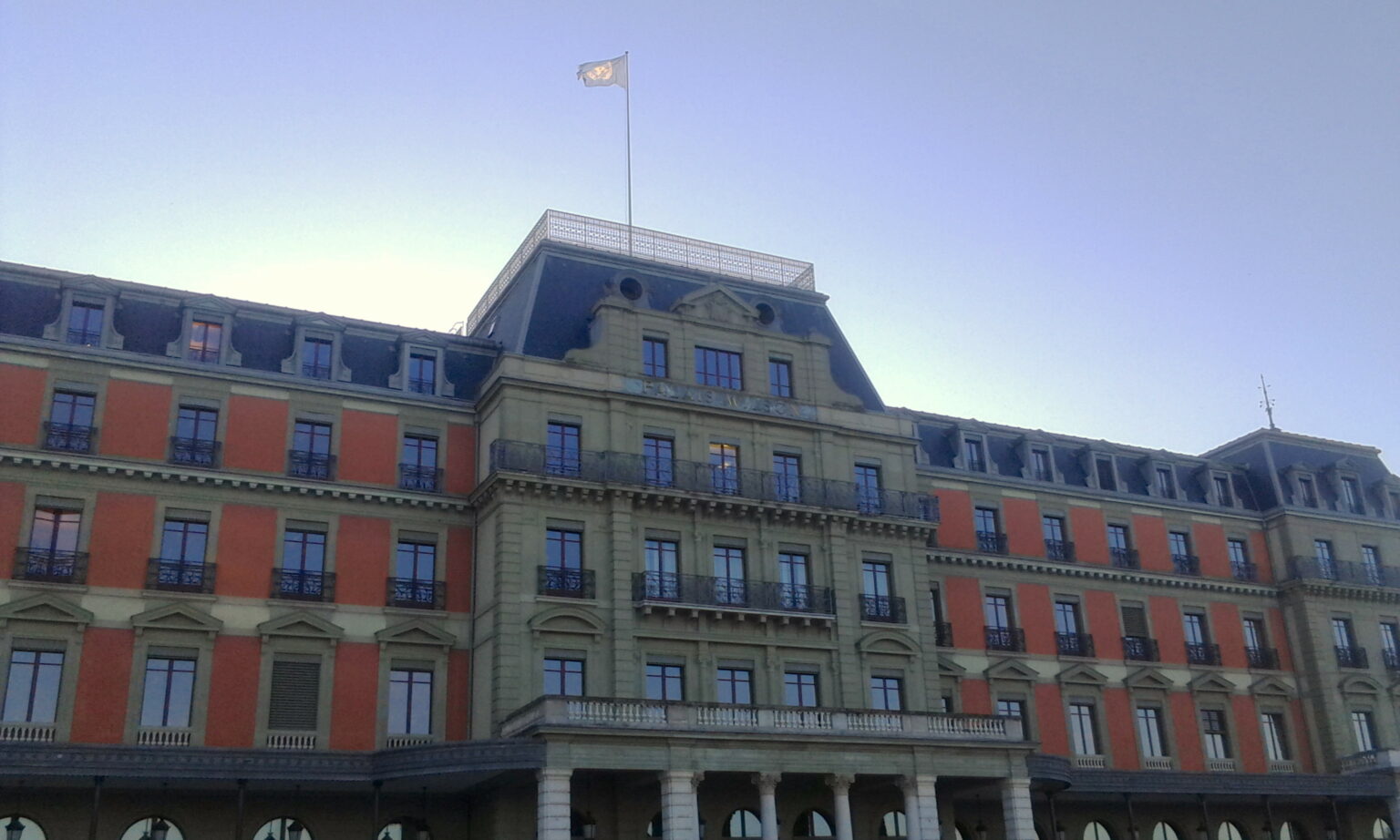
The UN Committee on the Rights of the Child found that Finland failed to consider the best interests of the child of a lesbian couple when assessing his asylum request. Now the country is under an obligation to provide reparation.
The UN Committee on the Rights of the Child found that Finland failed to consider the best interests of the child of a lesbian couple when rejecting his asylum request, and to protect him against a real risk of irreparable harm when the family had no other choice but to return to Russia.
“This is a ground-breaking decision: it is the first asylum-related case from the UN system involving a child who is facing specific risks on the grounds of his mother’s sexual orientation, and of the family they form together”, said Kseniya Kirichenko, Programme Coordinator at ILGA World. “This is also the first time that the UN Committee on the Rights of the Child made a decision on sexual orientation issues, and the first case on children in same-sex families in Treaty Bodies’ practice altogether”.
The Committee’s decision was informed by a third-party intervention submitted jointly by ILGA World, ILGA-Europe, the International Commission of Jurists (ICJ), Child Rights International Network (CRIN) and Network of European LGBTIQ* Families Associations (NELFA).
The Committee’s decision concerned an application filed on behalf of A. B., now 11, who had fled Russia together with his mothers after the family faced harassment and threats, and he had started to suffer from bullying and isolation at school. These were the years when regions across Russia had started to introduce so-called “anti-propaganda laws”, which have contributed to an increasingly hostile environment against people of diverse sexual orientations, gender identities and expressions. Legislation that bars “promoting non-traditional sexual relationships” was eventually adopted in 2013 at the national level.
Fearing for their safety, the family fled to Finland, where the child started to attend school, made friends, and no longer had to live in fear of calling both of his parents “mother” and of talking to anyone about his family. However, Finland rejected their application for asylum: authorities recognised the past experiences of threats, bullying and discrimination; nonetheless, they concluded that these could not be considered as amounting to persecution.
The family was left with no other choice but to return to Russia. However, the complaint against Finland reached the United Nations, where in February 2021 the Committee on the Rights of the Child concluded that Finland “failed to adequately take the best interests of the child as a primary consideration when assessing the author’s asylum request based on his mothers’ sexual orientation, and to protect him against a real risk of irreparable harm in case of return to the Russian Federation”.
“This is an important decision, setting out necessary standards for the protection of children in LGBTI families who are at heightened risk of discrimination, especially in countries like Russia, where LGBTI people face stigmatisation and hostilities in their everyday lives”, said Arpi Avetisyan, Head of Litigation at ILGA–Europe. “States must always ensure that the best interests of the child are effectively and systematically taken into account in the context of asylum proceedings, and that they are not discriminated based on their parents’ sexual orientation.”
While finding Finland in violation of articles 3, 19, and 22 of the Convention on the Rights of the Child, the UN committee pointed out that the state “is under an obligation to provide an effective reparation to the author, including adequate compensation.”
The decision has the potential to bring about change. “In the past, we have seen that international decisions on lesbian, gay and bisexual asylum seekers actually led to giving the applicants residency in the respondent States”, concluded Kirichenko. “We hope that Finland will also ensure that this family will be able to come back and to finally have a happy and safe life”.
Notes for editors:
UN Treaty Bodies (Committees): committees of independent experts appointed to review the implementation by State parties of an international human rights treaty.
Committee on the Rights of the Child: part of the UN Treaty Bodies, it is a United Nations body of 18 Independent experts that monitors the implementation of the Convention on the Rights of the Child by its State parties.
More information about Treaty Bodies is available in ILGA World’s annual Treaty Bodies reports and strategic litigation toolkit. Recordings of ILGA World’s webinars on United Nations advocacy, including on Treaty Bodies, are available here.
Additional resources:
Press releases on the case
- Finnish Rainbow Families Association Sateenkaariperheet – Regnbågsfamiljer ry
- Finland’s Ministry of Foreign Affairs
Media contacts:
- Daniele Paletta, ILGA World communications coordinator, media@ilga.org
- Ana Muñoz Padrós, ILGA-Europe communications officer, ana@ilga-europe.org
- Björn Sieverding, NELFA media team, media@nelfa.org
V.D. v Russia
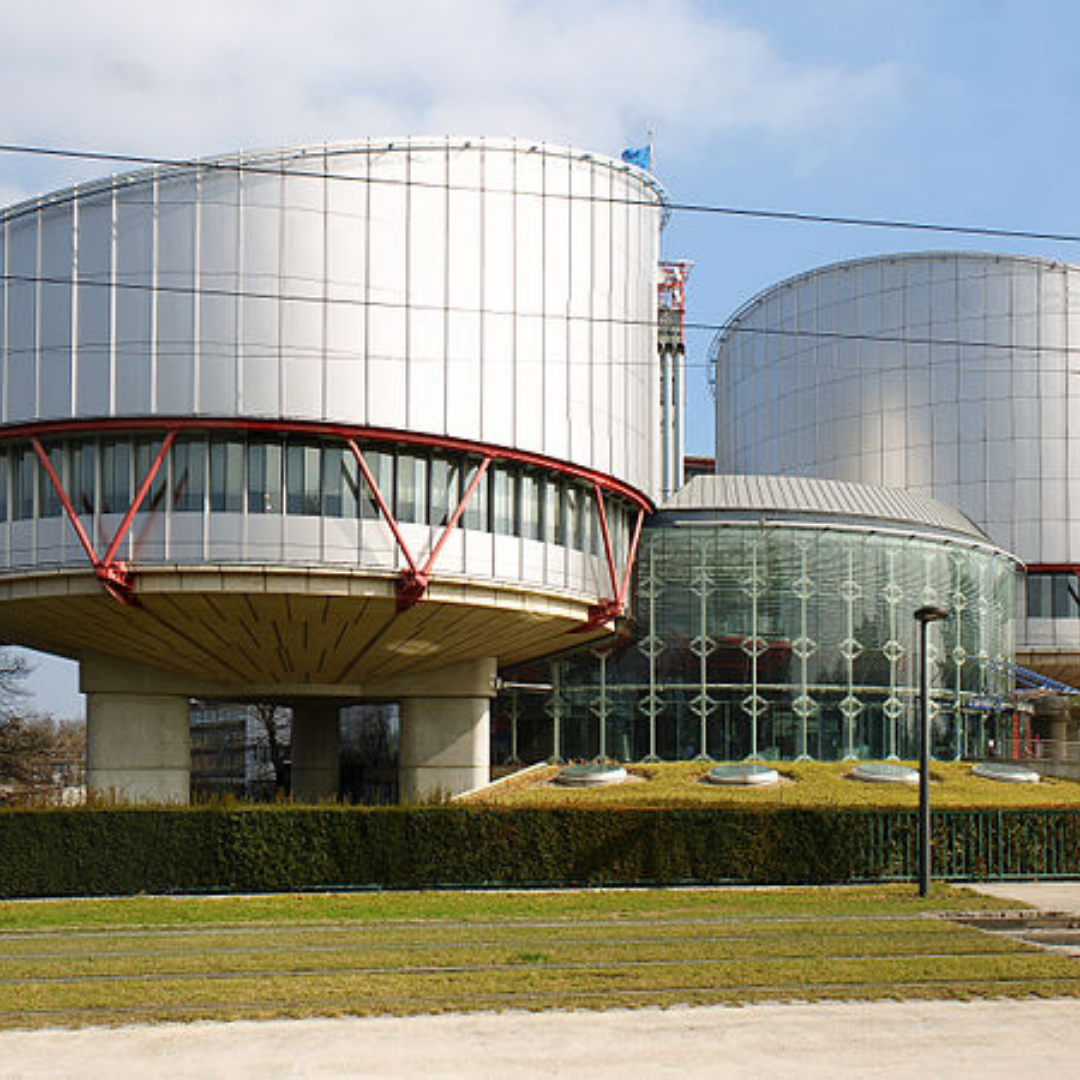
Asylum
Submitted jointly by ILGA-Europe, AIRE Centre, ICJ and UKLGIG.
ILGA-Europe welcome a landmark judgment by the European Court of Human Rights concerning the deportation of a gay man to The Gambia
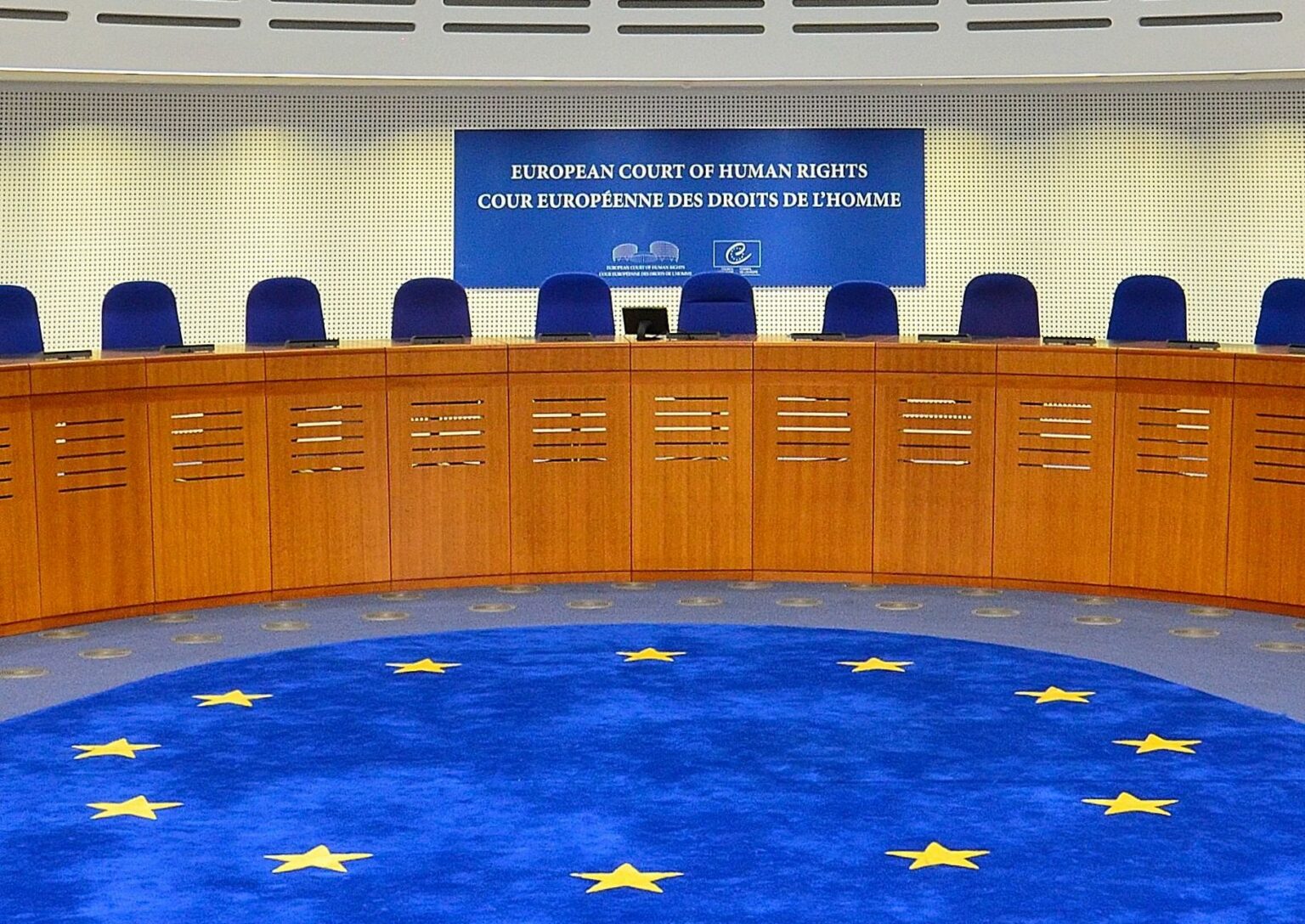
Yesterday, in the case of B. and C. v Switzerland, for the first time the European Court of Human Rights found that deportation of the applicant, a gay man, would give rise to a violation of Article 3 due to failure by the responding State to assess the risks of ill-treatment for a gay person in The Gambia, and the availability of State protection against ill-treatment emanating from non-State actors.
While the Court considered that the mere existence of laws criminalising homosexual acts in the country of destination does not render an individual’s removal to that country contrary to Article 3, it took note of widespread homophobia and discrimination against LGBTI persons in The Gambia. Here the Court relied heavily to the third-party intervention submission by ILGA-Europe, an umbrella organisation for over 600 LGBTI member organisations in Europe, alongside AIRE Centre, ICJ and ECRE.
The Court concluded that although the laws criminalising same-sex relations may not be imposed, they are however an indication that State protection of LGBTI individuals would not be available putting the person at risk of violation of Article 3.
According to Arpi Avetisyan, Senior Litigation Officer with ILGA-Europe: “The findings in this judgment have been long-awaited. For the first time the European Court of Human Rights established that in consideration of deportation cases, the failure of sufficiently assessing the risks of ill treatment based on one’s sexual orientation, particularly by non-state actors in a country of origin, gives rise to violation of Article 3. We welcome this judgement as a significant step forward in protecting rights of LGBTI asylum seekers and hope it will serve as a beacon of Court’s guidance on similar cases across Council of Europe.”
ILGA-Europe, TGEU and Transvanilla welcome landmark judgement from the European Court of Human Rights recognising the right of refugees to legal gender recognition
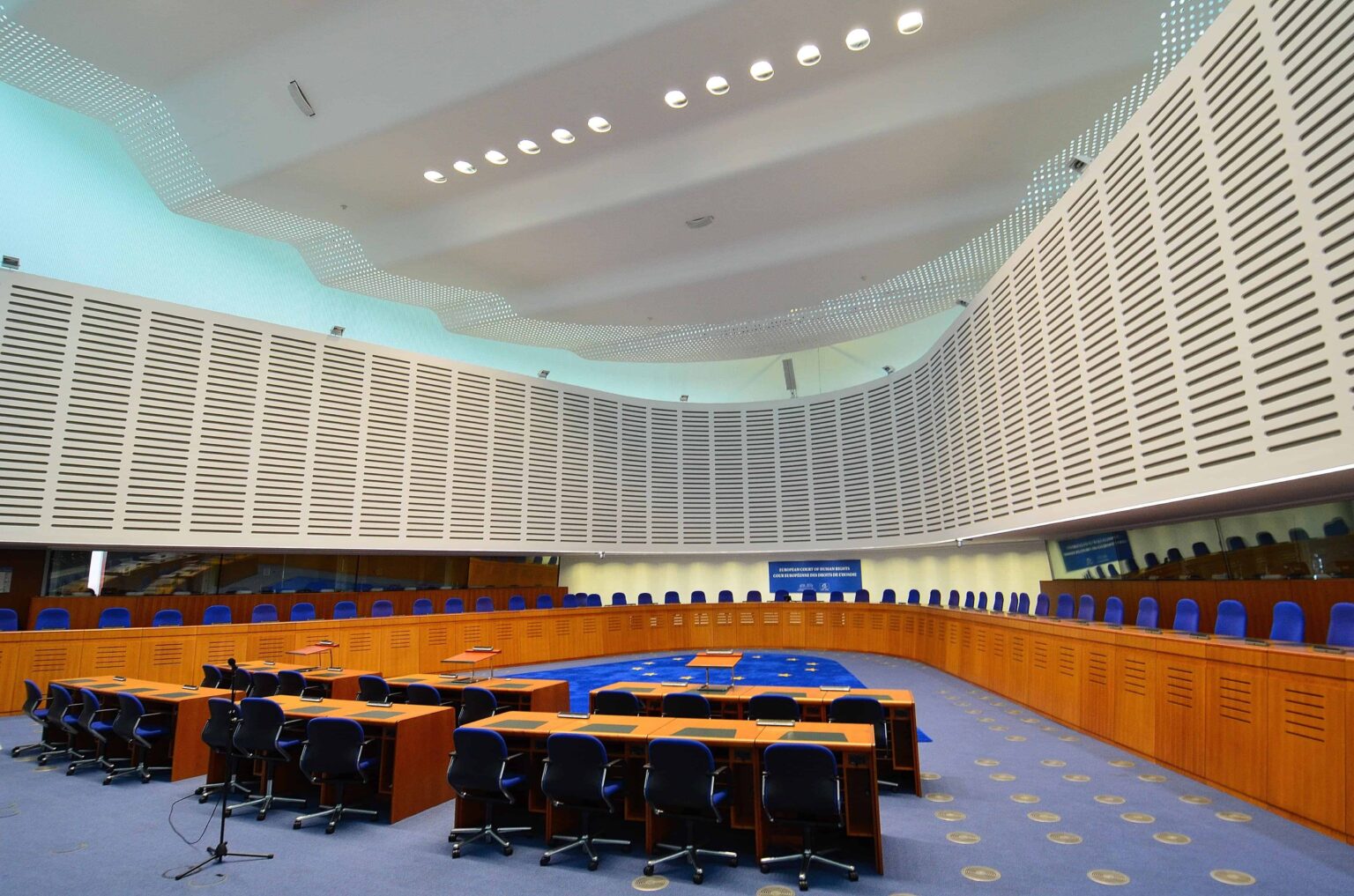
In the judgement Rana v. Hungary delivered today, the European Court of Human Rights (ECHR) held that Hungary had breached its obligation to protect the right to private life under Article 8 of the Convention by rejecting the application of an Iranian transgender refugee to have his name and sex marker changed officially.
The judgement is even more significant because it arrives two months after the Hungarian Parliament approved a bill, replacing “sex” on the civil registry with “sex assigned at birth”, which effectively bans legal gender recognition in the country.
Back in 2017, when the case was introduced before the ECHR, it was possible to change one’s documents on the basis of an informal practice. However, the applicant’s request to have his name and sex marker officially changed was rejected because he did not have a Hungarian birth certificate.
The Hungarian Constitutional Court and the European Court of Human Rights noted that there was a legislative gap excluding all lawfully settled non-Hungarian citizens from accessing the procedures regardless of their circumstances, and that this gap “disproportionately restricted their right to human dignity”.
In the case at stake, the national authorities failed to consider the fact the applicant had been granted refugee status precisely because he had been persecuted on the grounds of his gender identity in Iran.
Importantly, not only did the Court recall the State’s positive obligation under Article 8 to secure the right to respect for private life, by providing a procedure allowing to have one’s gender identity legally recognised it also clarified that such an obligation extends to all lawfully settled non-national citizens.
Welcoming the judgement, Senior Litigation Officer with ILGA-Europe Arpi Avetisyan said: “This is an important and symbolic judgment – for the first time the Court confirms the right to legal gender recognition of refugees, and taking note of the right to human dignity as underscored by the Hungarian Constitutional Court. Significantly, it also reiterates States obligations to have procedures in place allowing recognition of gender identity and name change for trans people in general. We call on Hungarian government to implement the judgment swiftly and bring necessary changes”
TGEU Policy Officer Jonas Hamm added: “This judgement sends a strong message to one of the most marginalised groups within the European trans community but also European stakeholders. It confirms that trans rights are indeed human rights and trans refugees enjoy the same protection under the European Convention for Human Rights as everybody else. In times like these, this is a strong signal of hope to our most vulnerable members.”
“This judgement is timely for the European trans community and reassures what the Court had previously made clear: legal gender recognition has to be possible in states,” said Barnabás Hidasi, President of Transvanilla. “Now the court confirmed it has to be accessible also for refugees. 23 other applicants launched cases against Hungary with the help of Transvanilla in 2017 and in 2019. They are all Hungarian citizens whose LGR cases were delayed or not processed by authorities. We trust the Hungarian government will introduce a recognition procedure again in compliance with today’s decision.”
Further information:
- Find out more about the situation for trans and intersex people in Hungary.
- Find out more about ILGA-Europe’s strategic litigation work.
- Find out more about TGEU legal work.
- Find out more about Transvanilla’s current actions on legal gender recognition
- Read the full judgement.
- Read the joint third-party intervention of TGEU, ILGA Europe and Transvanilla Transgender Association submitted to the Court in October 2017.
For media requests to ILGA-Europe, TGEU and Transvanilla on this issue, please contact Ana Muñoz: ana@ilga-europe.org, +32 493 35 60 55
B and C v Switzerland

Asylum/ arbitrary refoulement
(Application no. 889/19), 18 December 2019
Find here the communicated case.
Find here our press statement regarding the judgement.
- The applicant is a national of Gambia. He is in registered same-sex partnership with a Swiss national. The applicant complains about the refusal of a residence permit and his impending expulsion to Gambia where he would face a risk of being subjected to treatment in breach of Article 3 of the Convention.
- ILGA-Europe together with the European Council on Refugees and Exiles (ECRE) and the International Commission of Jurists (ICJ) submitted the following:
- Criminalization of consensual same-sex sexual conduct is incompatible with international human rights standards and is discriminatory. Besides, the absence of data on the implementation of criminal law may in itself be evidence of oppression and threats suffered by LGBTI persons.
- Concealment constitutes evidence of the objective well-foundedness of a subjective fear of persecution. Requiring coerced concealment of someone’s same-sex sexual orientation – as a way, purportedly, to mitigate the real risk of their being exposed to Article 3 prohibited treatment – constitutes pain and suffering amounting to proscribed treatment under Article 3 even if temporary. Mental harm resulting from fear of exposure to physical harm has been found by the ECtHR to constitute cruel, inhuman and degrading treatment. According to refugee law, in some cases psychological harm is persecutory.
- Enforcing removals on the basis that the individuals concerned would be expected to conceal their sexual orientation would constitute arbitrary refoulement and thus violate Article 3 ECHR.
- In Gambia, consensual same-sex sexual activity can give rise to a number of very serious criminal offences, with penalties ranging from seven years to imprisonment for life. In turn, the criminalization of consensual same-sex sexual relations fosters a climate of state-sanctioned homophobia, resulting in abuse, discrimination and violence by state and non-state actors. The mere existence of laws that criminalize consensual same-sex sexual conduct enables, encourages and contributes to the persecutory environment that exists in Gambia and exposes LGBT individuals to real risks of persecutory harm.
S.A.C. v UK

Arbitrary refoulement
(Application no. 31428/18), 28 February 2019
Find here the communicated case.
Communicated case:
- The applicant in this case complained that he that he would facea real risk of serious and irreversible harm under Article 3 of the Convention if he were to return to Bangladesh as a gay/bisexual man.
- ILGA-Europe together with the ICJ (International Commission of Jurists) and the UK Lesbian and Gay Immigration Group (UKLGIG) submitted the following:
- There is a consistent approach in the case-law relating to Bangladesh as a country where imputation, suspicion, discovery or identification of someone’s sexual orientation or identity as LGBT is likely to give rise to a real risk of serious harm.
- According to the ECtHR, treatment which is grounded upon a predisposed bias on the part of a heterosexual majority against a homosexual minority may, in principle, fall within the scope of Article 3. Under refugee law, prosecution may amount to persecution if the criminal law is enforced or punishment meted out in a disproportionate or discriminatory manner.
- Concealment constitutes evidence of the objective well-foundedness of a subjective fear of persecution. Requiring coerced concealment of someone’s same-sex sexual orientation – as a way, purportedly, to mitigate the real risk of their being exposed to Article 3 prohibited treatment – constitutes pain and suffering amounting to proscribed treatment under Article 3 even if temporary. Mental harm resulting from fear of exposure to physical harm has been found by the ECtHR to constitute cruel, inhuman and degrading treatment. According to refugee law, in some cases psychological harm is persecutory.
- Enforcing removals on the basis that the individuals concerned would be expected to conceal their sexual orientation would constitute arbitrary refoulement and thus violate Article 3 ECHR.
Psychological tests should not be used to check credibility of LGBTI asylum seekers
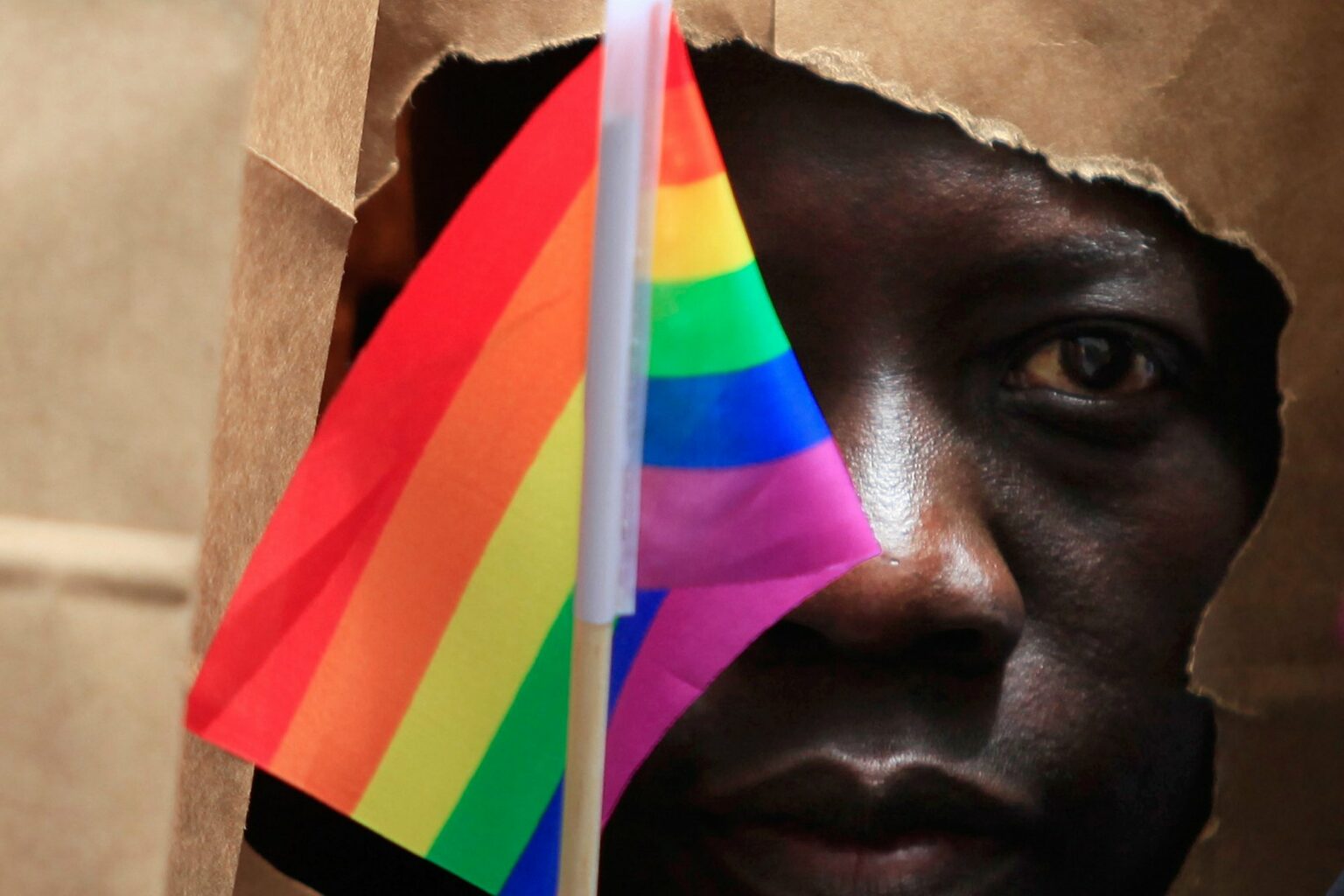
in an important development from the Court of Justice of the European Union, psychological testing has been prohibited as an assessment method for . These tests cannot be used to determine an asylum seekers sexual orientation.
In a seminal judgment in the F v Bevándorlási és Állampolgársági Hivatal case, the CJEU ruled that psychological testing should not be used as a credibility check and is in violation of the right to privacy and dignity enshrined in the Charter of Fundamental Rights of the EU.
The Court paid particular importance to the fact that such tests refer to the most intimate aspect of one’s life, and the fact that refugees and asylum seekers undergoing assessment may not necessarily consent to it freely by “being de facto imposed under the pressure of the circumstances”.
Considering international human rights standards (including the Yogyakarta principles stipulating “no person may be forced to undergo any form of psychological test on account of his sexual orientation or gender identity”), the Court found that expert reports through psychological testing aimed at determining sexual orientation of the asylum seeker respresent a serious interference in person’s right to respect for his private life.
Rana v. Hungary

Change of name and gender of Iranian refugee
(Application no. 40888/17), 7 November 2017
Find here the communicated case.
- The present case concerns an Iranian trans man who was granted refugee status in Hungary. The Hungarian authorities summarily rejected his request for legal gender recognition (LGR), invoking the absence of a specific legal procedure applying to his situation.
- In their submission to the European Court of Human Rights ILGA-Europe together with TGEU and Transvanilla Transgender Association argued that:
- Under European Refugee law, States have an obligation to provide legal status and suitable documentation, to ensure access to social rights and not to discriminate. LGR is seen as an element of legal status and as key to ensuring migrants’ access to public or private services, or to the labour market. Mismatching documents can cause re-traumatisation of trans refugees during asylum procedures and in the aftermath.
- State Parties have a positive obligation under Article 8 to adopt LGR procedures that are “effective and accessible.” The Court found violations of the Convention in several other cases on account of LGR schemes that were misconceived or incomplete, giving rise to arbitrary or unfair outcomes. The same principle is firmly entrenched in other international law and professional guidelines. Lastly, comparatively more countries chose to provide recognised refugees with LGR.
O.S. v Switzerland

Asylum/ arbitrary refoulement
(Application no. 43987/16), 24 July 2017
Find Court’s communication here.
- The applicant complained under Article 3 of the European Convention about his impending expulsion to Gambia. He feared that, owing to his homosexuality, even a temporary return to Gambia would expose him to a real risk of arbitrary detention, imprisonment and torture.
- ILGA-Europe together with the AIRE Centre, the ECRE and the ICJ submitted that:
- Concealment is probative of a subjective fear of persecution and constitutes evidence of the objective well-foundedness of that subjective fear . Mental harm resulting from fear of exposure to physical harm has been found by the ECtHR to constitute cruel, inhuman and degrading treatment. Enforcing removals on the basis that the individuals concerned would be expected to conceal their sexual orientation would constitute arbitrary refoulement and thus violate Article 3.
- In Gambia, consensual same-sex sexual activity, can give rise to a number of very serious criminal offences, with penalties ranging from seven years to imprisonment for life. In turn, the criminalization of consensual same-sex sexual relations fosters a climate of state-sanctioned homophobia, resulting in abuse, discrimination and violence by state and non-state actors. The mere existence of laws that criminalize consensual same-sex sexual conduct enables, encourages and contributes to the persecutory environment that exists in Gambia and exposes LGBT individuals to real risks of persecutory harm.
M.T. v. France

Refusal to grant asylum/ Risk of persecution based on sexual orientation
(Application No. 61145/16), 6 July 2017
Find Court’s communication here in French.
Find Court’s decision here in French.
- The applicant, gay asylum seeker from Cameroon, claimed he would face a real risk of treatment contrary to Article 3 because of his sexual orientation if he were deported back to Cameroon.
- Professor Robert Wintemute (School of Law, King’s College London) submitted the following on behalf of ILGA-Europe, FIDH, LDH and ECSOL :
- There is a strong consensus in European and other democratic societies supporting asylum claims by LGBTI persons. The assessment of the risk must take into account the likelihood that an openly LGBTI person would suffer treatment violating Article 2 or 3. An LGBTI person cannot be expected to conceal their sexual orientation or gender identity in their country of origin to reduce the risk of treatment violating Article 2 or 3.
- Apart from any risk of violence, the Court should consider a real risk of imprisonment for private, consensual, adult, same-sex sexual activity (as in Cameroon) as a real risk of inhuman or degrading treatment violating Article 3.
E.S. v. Spain

Asylum
(Application no. 13273/16), 16 January 2017
Find here the communicated case in French.
Find here the decision in French and Spanish.
- The applicant feared that, owing to his homosexuality, his return to Senegal would expose him to a real risk of treatment contrary to Articles 2 and 3 of the Convention.
- ILGA-Europe together with the AIRE Centre, ECRE, HDT and the ICJ submitted the following:
- Mental harm resulting from fear of exposure to physical harm has been found by the ECtHR to constitute cruel, inhuman and degrading treatment. According to refugee law, in some cases psychological harm is persecutory. Concealment is probative of a subjective fear of persecution and constitutes evidence of the objective well-foundedness of a subjective fear of persecution. Requiring coerced concealment of someone’s same-sex sexual orientation – as a way, purportedly, to mitigate the real risk of their being exposed to Article 3 prohibited treatment – constitutes arbitrary refoulement and thus violates Article 3.
- The criminalization of consensual same-sex sexual relations in Senegal fosters a climate of state-sanctioned homophobia, resulting in abuse, discrimination and violence by state and non-state actors. It enables, encourages and contributes to the persecutory environment that exists in Senegal and exposes LGBT individuals to real risks of persecutory harm.
Protecting the rights of LGBTI asylum seekers and refugees in the reform of the Common European Asylum System
With this briefing, ILGA Europe sets out how to ensure that the proposed EU directives and regulations will protect the rights of LGBTI asylum seekers, and respect their specific needs in terms of reception conditions, procedures and protection status.
ILGA-Europe’s key demands:
- The new Qualification Regulation, the Reception Conditions Directive and the Procedure Regulation should enhance protection, reception and procedural standards offered to people persecuted on the ground of their sexual orientation, gender identity, gender expression and sex characteristics.
- Outdated or inappropriate language excluding trans and intersex people or linking LGBTI people to criminal practices should be removed.
- The definition of the asylum seeker’s family members should be improved to clearly include same-sex partners and their families.
- People belonging to persecuted minorities, including LGBTI people, should not be subject to accelerated procedures, like lists of safe countries of origin, safe third countries, etc.